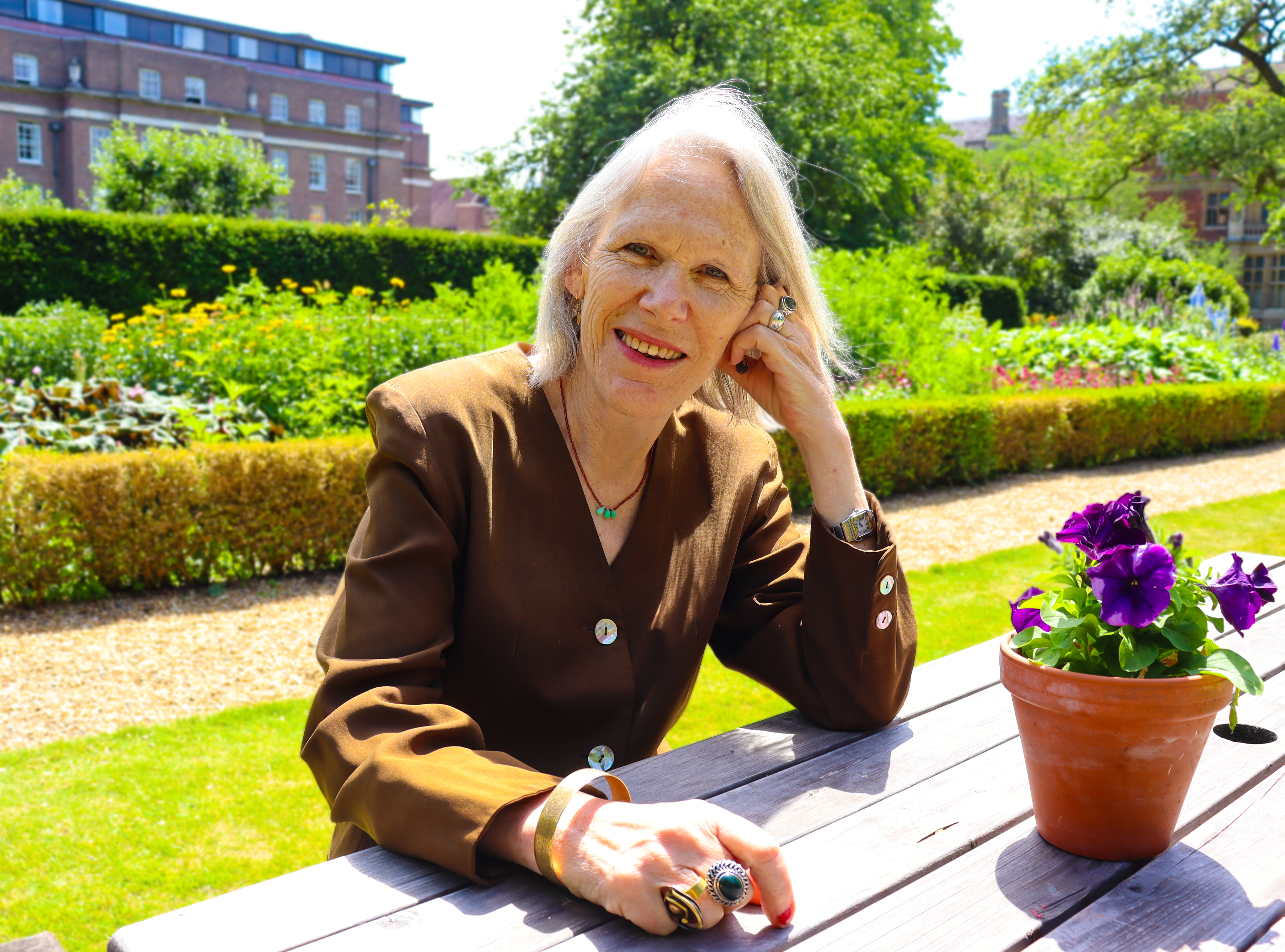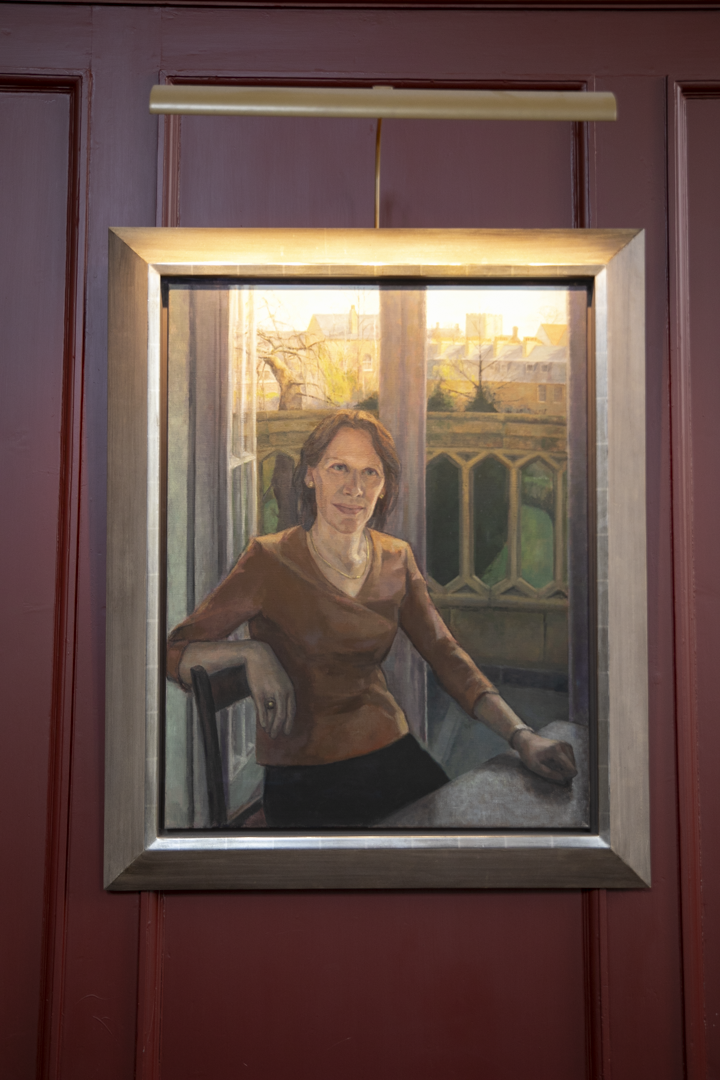Professor Dame Sandra Dawson was Sidney’s first female Master and the first female Master of a previously all-male Cambridge College. She is an expert in corporate governance, organizational theory and information systems, and has served on the boards of Barclays, TSB and Oxfam.
Dame Sandra is the former Dean of Cambridge Judge Business School, where she remains a Fellow and Advisory Board Member. She recently served on the Independent Advisory Group to the Windrush Lessons Learned Review and has been appointed a Governance Expert Witness to the inquiry into the Post Office Horizon IT scandal.
Responding directly to this year’s International Women’s Day theme, how do we inspire inclusion?
‘Well, one thing's for sure: we can't command it. You can't say to people, ‘You will feel included, because we're an inclusive organisation,’ you can only set the conditions that will inspire a feeling of inclusion, and that means really going to talk with the people who feel excluded. It's about saying, what does it look like to be in this organisation or approaching this organisation as a customer, as an employee, as a contractor, as a student? What does it feel like? Do I feel that I'm welcomed? It is about the conditions that we create, but it's utterly to do with the feelings of those who feel excluded.’
You are an expert in corporate governance. We’ve seen a number of high-profile initiatives in recent years – for example, around gender pay gap reporting and women’s representation on FTSE100 and FTSE350 boards. Are we right to focus on these big initiatives?
‘Well, the big initiatives are fundamental. It's fundamental to know what the gender pay gap is. It's fundamental to know what representation we have from various groups across society. But measuring that data - and indeed the processes that are put in place - is only the beginning. Because you can have processes which nobody pays attention to. You can have processes which although they're there, nobody puts them top of the agenda. You can collect data and not look at it and not act on it. So whilst they're an essential part, they're not the whole story. And in fact, if you have systems which are not put into practice, which are not really running throughout the whole organisation, then it's worse because people think you are just hypocritical. So, the big initiatives are fundamentally important, but not enough.’
So, looking at the corporate world, are we making enough progress quickly enough?
‘Well, I'm always impatient, but I'm always optimistic. So on the optimism side, yes, of course we are making progress, and if you look at the figures, if you look at how people say they feel, you will find more participation and a more inclusive atmosphere in many places.’
‘However, is it fast enough? Not for me.’
And you have also seen, of course, the same challenges in education. You were the first female Master of Sidney which, as is the case with the majority of Cambridge Colleges, was previously an exclusively male environment. Does starting from that point of the ‘all male world’ mean that it takes longer?
‘It is a long process, but for me there are three key steps. You need to listen with an open mind, with respect and curiosity, to what everyone and especially those who feel excluded, have to say about their experience. That will help you learn what it is about the way things are run or organised which makes some people feel excluded.
‘Second, you need to ask yourself what the changes are that you need to make to ensure people will feel included. These could be changes in language, in structure, or your priorities.
‘Then, third, as a leader, you have to work out how you bring everyone with you to make those changes.
‘You mentioned my time as Master, and I can always say that I enjoyed every moment of that role. I never felt that I was in any way an oddity. And of course, one has the great advantage that you are the choice of the Fellows when one enters into the role. So for me, it was a matter of loving it and perhaps gently changing things. I think if you look at my portrait in Hall, there's an open window behind me. I think that if I did anything when I was in the wonderful position of being Master, it was to - just slightly - open up the College to different views, to different perspectives, to invite families in and to ensure that we were perhaps a more open society than maybe we'd been before.’
I’m sure that you’ve met a large number of very inspiring women. What’s your message to our future leaders?
‘Well, we need to remember that we are all role models. All of us are role models for the people who are going to be following. And if we can lead by example, if we can demonstrate that we really are interested in everyone who wants to come and be part of our organisation, and if we realise that we've got to change our organisations to enable a greater feeling of inclusion, then we will make progress.
‘Diversity is really important in helping us to make good decisions which will go forward into the future. There's a human reason for diversity, there's an ethical reason, there's also a very practical reason. People who see things differently have got an enormous amount to contribute. And that's what I'd say to everyone. Be yourself, be as you feel. You shouldn’t have to adjust to the organisation - the organisation has to learn how to change to enable it to move with the times. And I think Sidney has actually done that very well.’
Is there anything we aren't doing at the moment that you think we could be doing from that point of view or do more of?
‘I think we should look very carefully at all our communications. We know the power of social media and it’s important that our communications represent the reality of what it really means to be a diverse and inclusive organisation. I think we've made progress on that, but I think nothing should go out from us and nothing should be part of us, which doesn't make us very proud to say, yes, we are an inclusive, friendly, and diverse place. Let's make sure that there's nothing that we communicate and above all, nothing that we do, which suggests that is not the case.’
If you have something that would make a good news or feature item, please email news@sid.cam.ac.uk


